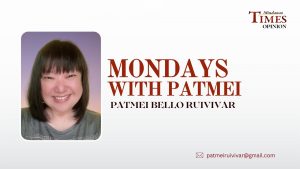Davao City jump starts the Philippine Blockchain Week or PBWx nationwide series on Tuesday, July 30, from 10 am to 6 pm at the Arcadia Event Center.
From Davao, the Philippine-wide series will go to Bacolod next on August 23-24 at the Central Hall by Ayala Malls, Capitol Center; then to Bataan on September 24-25 at the Bataan People’s Center; and finally to Metro Manila on October 10-11 at the Podium Hall.
The event, dubbed as “ChainReact: Igniting a Digital Revolution in the Philippines,” brings together industry leaders, innovators, and blockchain enthusiasts to promote the “digital transformation and innovation” in the Davao Region.
According to the organizers, PBWx is a series of dynamic blockchain events designed to strengthen the Philippine blockchain landscape.
“Taking inspiration from the renowned TEDx talks, PBWx aims to bring revolutionary ideas that spark transformative conversations within local communities by facilitating world-class learning sessions with local and global industry experts,” the PBWx media release said.
PBWx has the full support of the City Government of Davao, through the Davao City Investment Promotion Center (DCIPC), the Department of Information and Communications Technology (DICT), and the Davao City Chamber of Commerce and Industry (DCCCI).
It is part of the city’s big innovation push led by the private sector and Davao’s new generation of digital natives. They share the belief that part of innovation is embracing the digital revolution.
“Davao City Chamber is excited to partner with PBWx because we believe that understanding the vastness and entirety of blockchain will be beneficial for the business community,” Belinda L. Torres, President of DCCCI said.
Blockchain is a concept that is gaining wide acceptance within the private sector, especially in the tech industry. However, it is something that the general public is still reluctant to embrace.
This reluctance comes from the usual fear of the unknown. Many people are still unfamiliar with how blockchain works and its potential benefits, leading to skepticism. And it does not help that most of the big news related to blockchain have been scandalous in nature adding to the public’s reluctance.
Recently, I have met some young blockchain enthusiasts in Davao City who explained to me that blockchain is more than cryptocurrency and Bitcoins — terms we often read about in those controversial news stories online.
As I understand it, blockchain technology works like a public ledger or notebook that records every transaction or piece of information. But instead of just having one notebook that everyone can change, this notebook is copied and shared among many people.
Whenever someone wants to add a new entry on the notebook, everyone else who has a copy needs to agree before it gets added.
So blockchain is essentially good for security because once a transaction is recorded, it is hard to change it. It is also good for transparency because everyone has a copy and can see all the entries. It is hard for anyone to cheat or fake transactions.
Why is it called blockchain? Even the term seems scary because it is close to “blacklist” and chain is not a word that evokes positive feelings. Clearly, the one who coined it is probably not a communications or marketing specialist.
Well, it turned out that blockchain is derived from the way the technology organizes and records data.
Data is stored in discrete units called “blocks.” Each block contains a list of transactions or data entries. Think of a block like a page of a notebook. Now these blocks are linked together in a specific order to form a “chain.” Each block has a reference to the previous block, creating a continuous chain of blocks from the “genesis block” (the first one) to the most recent.
This sequential linkage is ensured by using a cryptographic hash, a unique digital signature generated from the data in the previous block that is included in the succeeding block. If any block’s data is altered, its hash changes, which invalidates the entire chain after it.
This structure ensures the integrity, transparency, and security of data recorded on the blockchain.
Is this the technology that will finally make government transactions transparent and ethical? Can blockchain help bring about low levels of corruption?
If I understand correctly how blockchain works, the use of this technology can create a secure and tamper-proof voting system. If each vote is recorded as a transaction on the blockchain, it would be almost impossible to alter the results. Plus voters can verify their votes have been counted that will ensure transparency in the electoral process.
Another good use of blockchain would be in public records and documentation, especially in land registries and in identity verification.
And if the government’s flood control projects had been recorded on blockchain, we could have easily tracked the origin and journey of the materials and supplies used to build them, ensuring quality and preventing ghost projects. It can also streamline and automate procurement processes, making them more transparent, ensuring compliance, and reducing delays.
Even the distribution of “ayuda” can be greatly enhanced by blockchain, avoiding delays and reducing administrative costs. It can make sure that the assistance will be securely and transparently delivered to the intended recipients and beneficiaries.
Our SSS, GSIS, Pag-IBIG and PhilHealth can securely, transparently, and efficiently track contributions, payments, compliance and reporting with blockchain technology.
Most of all, blockchain can be very useful for government spending and budgeting. It can record how public funds are spent, making it easier to audit and prevent misuse or corruption.
I hope the Philippine Blockchain Week here in Davao can come up with innovative solutions to government corruption and inefficiency. This can be Davao City’s gift to the Filipino people.



